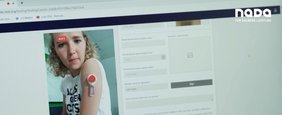
Ein sechsmonatiges Pilotprojekt zur Weiterentwicklung des Dopingkontrollsystems ist abgeschlossen. Das Forschungsprojekt zur Betrachtung weiterer Einsatzmöglichkeiten der Dried Blood Spot-Technik war von der Nationalen Anti Doping Agentur Deutschland (NADA) gemeinsam mit dem Institut für Biochemie der Deutschen Sporthochschule Köln und der Firma Sportradar Ende 2021 initiiert worden.
Insgesamt nahmen 24 Athletinnen und Athleten des Registered Testing Pools (RTP) aus verschiedenen Sportarten wie dem Bobsport, Fechten, Football, Gewichtheben, Radsport, Rennrodeln, Rudern, Triathlon, Skisport und Volleyball über die gesamte Projektlaufzeit teil. Darunter waren auch Teilnehmerinnen und Teilnehmer der Olympischen Winterspiele in Peking (China) im Februar 2022. 102 Dried Blood Spot-Proben wurden insgesamt genommen. Sechs Athletinnen und Athleten beendeten ihre Teilnahme ohne Angabe von Gründen vorzeitig.
Aufgrund der COVID-19-Pandemie kam es im Sport zu gravierenden Kontaktbeschränkungen und zahlreichen abgesagten Wettkämpfen. Hier ist es aus Sicht der NADA wichtig, neue Wege in der Anti-Doping-Arbeit zu gehen und Lösungsansätze zu den Herausforderungen einer Pandemie zu suchen. Ziel des Projektes war es mit Hilfe der Digitalisierung, Lösungen für die Umsetzung des Kontrollsystems zu erproben. Zur Abnahme der Dried Blood Spot-Proben wurde eine neue technische Remote Testing-Lösung in Form einer App entwickelt, die erstmalig in der Praxis erfolgreich angewendet wurde. Die Erhöhung der Kontrollfrequenz mittels Dried Blood Spot-Kontrolle bei gleichzeitiger Reduzierung von unmittelbaren Kontakten zwischen Kontrollpersonal und Athletinnen und Athleten konnte dadurch gewährleistet werden. Die teilnehmenden Sportlerinnen und Sportler bewerteten den neuen Ansatz positiv und sehen Remote Testing als geeignete, ergänzende Maßnahme zu klassischen Dopingkontrollen. Weiterhin kamen verschiedene Versiegelungstechniken zum Einsatz, die in der Handhabung durch die Athletinnen und Athleten bewertet wurden.
Inhaltlich befasste sich das Forschungsprojekt zudem mit den analytischen Möglichkeiten der Dried Blood Spot-Proben zum Nachweis möglicher Manipulationen, z. B. aufgrund von Kontaminationen oder Sabotagehandlungen, um saubere Athletinnen und Athleten besser vor unberechtigten Dopingvorwürfen zu schützen. Der mögliche Nachweis von Manipulationen durch Dried Blood Spot-Proben wurde von den Sportlerinnen und Sportlern als Sicherheitsfaktor wahrgenommen.
Die NADA wird die Ergebnisse des Forschungsprojektes in die aktuelle Konsultationsphase des International Standard for Testing and Investigations (ISTI) 2023 bei der Welt Anti-Doping Agentur (WADA) einbringen, um auch die Möglichkeit der Remote-Probenahme als ergänzendes Tool zukünftig zu ermöglichen. Aktuell sind Remote-Kontrollen nicht Teil des Anti-Doping-Regelwerks und somit nicht justiziabel.
--English--
Completion of the Dried Blood Spot-Remote Research Project
A six-month pilot project to further develop the testing programme has been completed. The research project to look at further possible uses of the Dried Blood Spot technique had been initiated by the National Anti Doping Agency of Germany (NADA Germany) together with the Institute of Biochemistry at the German Sport University Cologne and the company Sportradar at the end of 2021.
A total of 24 athletes from the Registered Testing Pool (RTP) from various sports such as bobsleigh, fencing, football, weightlifting, cycling, luge, rowing, triathlon, skiing and volleyball took part over the entire project period. Among them were participants of the Olympic Winter Games in Beijing (China) in February 2022. 102 Dried Blood Spot samples were taken in total. Six athletes ended their participation prematurely without giving a reason.
Due to the COVID-19 pandemic, there were serious contact restrictions and numerous cancelled competitions in sport. From NADA Germany's point of view, it is important to break new ground in anti-doping work and to look for solutions to the challenges of a pandemic. The aim of the project was to test solutions for the implementation of the testing programme with the help of digitalisation. A new technical remote testing solution in the form of an app was developed for the collection of the Dried Blood Spot samples, which was successfully used in practice for the first time. The increase in the frequency of testing by means of Dried Blood Spot testing with a simultaneous reduction of direct contact between testing personnel and athletes could thus be ensured. The participating athletes rated the new approach positively and see remote testing as a suitable complementary measure to classical doping tests. Furthermore, different sealing techniques were used, which were evaluated by the athletes in their handling.
Substantively, the research project also dealt with the analytical possibilities of the Dried Blood Spot samples for detecting possible manipulations, e.g. due to contamination or acts of sabotage, in order to better protect clean athletes from unjustified doping accusations. The possible detection of manipulation through Dried Blood Spot samples was perceived as a safety factor by athletes.
NADA Germany will bring the results of the research project into the current consultation phase for the International Standard for Testing and Investigations (ISTI) 2023 at the World Anti-Doping Agency (WADA) in order to also enable the possibility of remote sampling as a supplementary tool in the future. Currently, remote testing is not part of the anti-doping regulation and is therefore not justiciable.